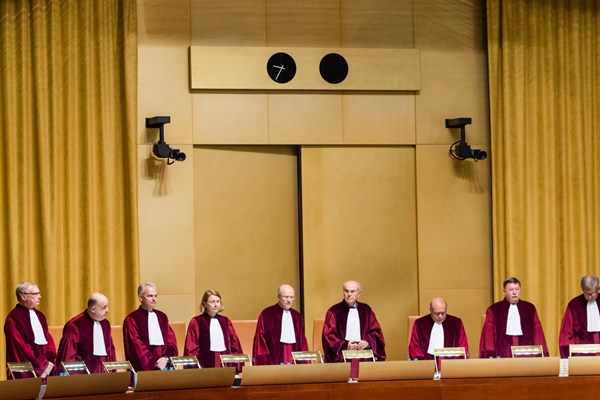Depending on whom you talk to and what month it is, the United States and the European Union are either on the brink of a digital trade war or reaching a historic e-commerce deal. EU-U.S. cooperation over the trans-Atlantic digital economy seemed to first fall apart in October 2015, when the European Court of Justice (ECJ) struck down a critical data-sharing deal known as the Safe Harbor Agreement. In doing so, Europe’s highest court put major companies such as Facebook and IBM at risk of breaching EU privacy law by simply conducting their day-to-day business operations.
National data-privacy authorities have since put those companies on notice, warning that they would have only a few months to bring their practices in line with European law or face legal sanction. To diffuse the situation, the European Commission—the EU’s executive body—and the U.S. Department of Commerce announced a new EU-U.S. Privacy Shield on Feb. 2, which would protect global firms as they engage in trans-Atlantic e-commerce. Immediately after the announcement, however, privacy advocates in Europe warned that they would bring suit to block the deal, throwing the agreement under a shroud of uncertainty.
The stakes are incredibly high. U.S. Secretary of Commerce Penny Pritzker has warned that data-privacy disputes could “put at risk the thriving transatlantic digital economy,” costing U.S. firms billions of dollars. Without a diplomatic solution, there exists a real possibility that personal data will have to be quarantined within Europe. Microsoft’s president, Brad Smith, fears that such fragmentation of the Internet threatens a “digital dark ages” that could undermine digital services ranging from payment systems to airline reservations. Eric Schmidt, the executive chairman of Alphabet, Google’s new parent company, has gone so far as to claim that the dispute jeopardizes “one of the greatest achievements of humanity.”

